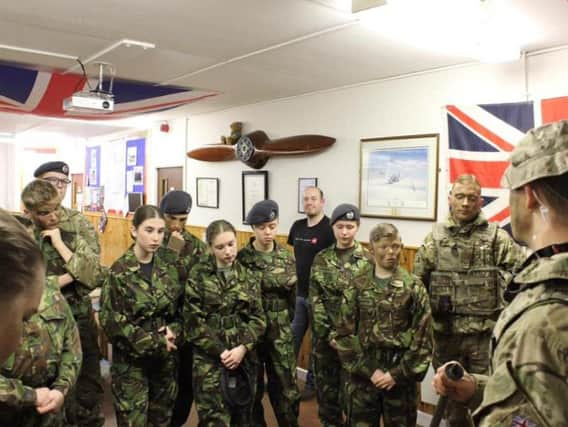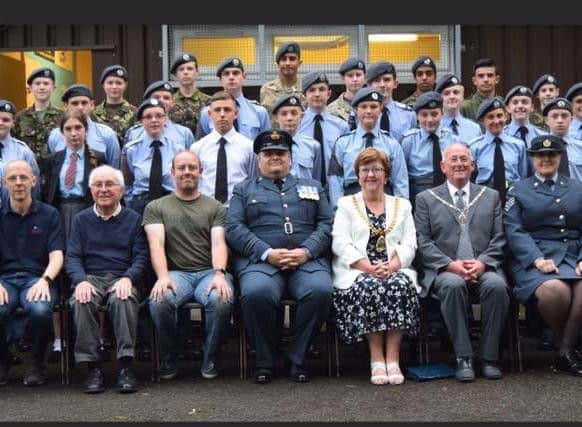The Air Training Corps: forging Burnley's leaders of tomorrow


This is The Air Training Corps (ATC), and they've been doing what they do for almost 80 years.
A volunteer-military youth organisation focused on their local community and open to anyone aged between 13 and 20, the ATC was formed in 1941. Set up in order to engender an interest in and a passion for aviation, physical fitness and training, and the spirit of adventure, it is sponsored by the Ministry of Defence and the Royal Air Force to this day.
Advertisement
Hide AdAdvertisement
Hide AdThe Royal Air Force Air Cadets 352 Burnley Squadron was founded on the 13th of February, 1941 - just two weeks after the national ATC movement was officially established as King George VI issued a Royal Warrant setting out the corps' aims. The squadron currently has has 48 cadets ranging from the age of 12 (Year 8 at school) to 19 who are supervised by civilian instructors, current serving instructors, and uniformed cadet staff.


"Joining the organisation will enhance your leadership skills, testing them in practical situations," said civilian instructor (CI) Craig Barton, 47. "As a cadet you will quickly build important skills like teamwork, confidence and self-discipline, as well as having the opportunity to take on leadership roles. This will give the cadets a focus outside of school instead of playing on the mobile phones and iPads."
One of their three CIs, Craig has worked with the 352 Burnley Squadron for the past five months. Offering cadets the chance to do everything from going on overseas camps to RAF bases at places such as Gibraltar and Cyprus to representing the Air Cadets Organisation at national level in myriad sports, the ATC also offers those fascinated by flying the opportunity to pursue that endeavour.
"[Cadets get the chance to] feel the thrill of powered flight, with a fully-qualified pilot to guide them through taking control of the aircraft," explained Craig. "We have a purpose-built flight simulator where you can take control of a variety of planes and different terrains.
Advertisement
Hide AdAdvertisement
Hide Ad"Not only can you learn about the flying controls, but you’ll experience aerobatics and low level flying too," he added. "You could get to the level of being able to fly solo by the age of 16 - before you can even learn to drive."


Baring the apt motto 'Venture - Adventure', the organisation is also the UK's largest operator of the Duke of Edinburgh's Award Scheme and counts amongst its former members the likes of ex-Spurs footballer Danny Blanchflower, Olympic gold medallist Linford Christie OBE, actor Timothy Dalton, McFly band member Tom Fletcher, and former England rugby union international Rory Underwood MBE.
Offering guidance in skills ranging from gliding and rock climbing to weapons training and field-craft (which includes camouflage, battle drills, and survival skills), the squadron also enables cadets to gain valuable qualifications such as first aid qualifications, BTECs, Royal Air Force leadership and management qualifications, and the aforementioned DofE Award. Far from a jovial summer camp, the ATC is all about enhancing skills.
"We have high standards to maintain as we are a 'military' youth organisation," said Craig, emphasising that cadets always take pride in their uniform and appearance. "Cadets will be self-disciplined. And [they] will be joining an organisation of which they will be very proud."
One would expect nothing less.